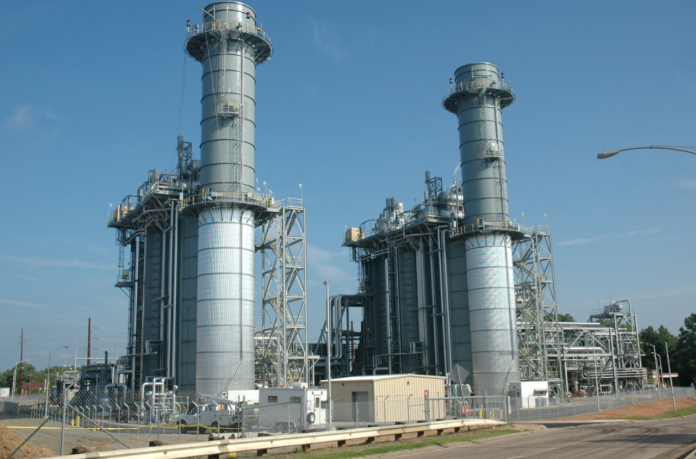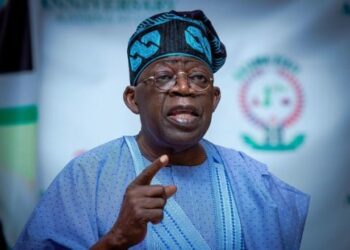Despite criticisms of slow adoption of strategies and not moving at acceptable pace with other nations in transiting and investing in new energy space, Nigeria has been seen as making appreciable progress providing leadership in renewable energy initiatives.
Shortly before the opening of the COP27 in Egypt Nigeria recommended a white paper titled: ‘Trade, Energy and Climate Change: Harmonising Nigerian and Global Concerns on Climate.’
The recommendation was conveyed by the minister of environment, power and trade just as the 2022 United Nations Climate Change Conference (COP27) opens in Egypt.
Led by PUTTRU, the white paper is a collaborative effort with the Federal Ministries of Environment, Power, Industry, Trade and Investment; Energy Commission of Nigeria (ECN) and the Office of the Deputy President of the Senate.
The objective of the white paper is to inform the international community and Nigeria’s trade partners on how the country’s national concerns on trade, energy and climate change can be harmonised with global concerns in a manner that ensures that Nigeria’s interests are seen as global interests.
The white paper posits that given Nigeria’s large and growing population, achieving this balance between trade, energy and climate change is a matter of national, continental and global concern, stressing that ultimately, the goal is to strengthen Nigeria’s position as a global trade partner in the global supply chain as the world moves towards a net-zero future.
The 58-page document is divided into four chapters namely, Climate Change, Energy, Trade and Trade, Energy and Climate Balance with three forewords written by Mohammed H. Abdullahi (Minister of Environment), Abubakar Aliyu (Minister of Power) and Otunba Niyi Adebayo (Minister of Industry, Trade and Investment).
Enriched with insights, the document has an impressive list of contributors and reviewers drawn from members of Technical Working Group (TWG) with experts from the Federal Ministries of Environment, Power, Industry, Trade and Investment, ECN and other Ministries, Department and Agencies (MDAs) of the federal government, the academia and civil society organisations.
In the forewords, the minister of environment wrote, “This white paper explores the different nexus between trade and climate change while focusing on how future trade opportunities will be affected by climate change and policy response. This will guide stakeholders in discussions on how trade provides the goods and services that can drive mitigation and adaptation, and the new opportunities for promoting trade diversification in the transition to a low-carbon world.”
The minister of trade and investments also wrote, “I commend the production of this white paper, which combines three of the most pressing concerns for not just our country or continent but for the entire world. The technical working group, made up of public and private sector representatives and the academia, have provided sound recommendations that harmonise both Nigerian and global perspectives on these topical issues.”
While urging the global community to adopt the position of the white paper, the minster of power wrote, “The ministry strongly calls on all stakeholders, private and public partners, investors and global climate change and energy experts to study the white paper for better understanding of the conditions necessary to achieve transformational economic development for our country and meet her climate obligations.”
Lead author of the white paper and founder of PUTTRU, Monica Maduekwe, remarked that the document calls for Nigeria’s international trade partners to act now, stressing the need for planned and targeted investments to go into strategic projects in the next five to seven years.
According to her, this is to avoid investing in infrastructures that are energy-intensive in the near term, since doing so will result in path dependencies that will delay the emergence of a carbon-neutral Nigeria.
Nigeria made good representations at the conference where several constraints that tend to slow growth in that space were highlighted.
It was generally mentioned and appreciated that many countries globally, tackling inflation remains the greatest concern, considering that high energy prices form a major trigger of spiking prices, leaving many leaders restless. The main sources of global energy are still fossil fuels: oil, natural gas and coal.
Oando Clean Energy Limited (OCEL), the renewable energy subsidiary of Oando Plc, at the conference sustained advocacy and investment to facilitate Nigeria’s energy transition plan.
The firm is also driving new business models in the renewable energy space which it is showcasing to the world at the 27th United Nations Climate Change Conference (COP27) themed ‘Delivering for People and the Planet’ in Sharm El Sheik, Egypt.
The event hosted more than 45,000 registered COP27 participants representing Parties, the United Nations (UN), regional non-governmental and intergovernmental organisations, businesses, the scientific community, local communities as well as civil society to jointly enhance and accelerate the implementation of climate action and follow up on collective commitments and pledges.
Tagged Africa’s COP, the event couldn’t have been hosted in Africa at a better time. Africa is no stranger to the disproportionate impact of climate change. The continent contributes only 3 per cent to greenhouse gas emissions but suffers disproportionately from its negative impacts.
Today, Africa loses between $7 billion and $15 billion annually to climate change and according to Akinwumi Adesina, President of the African Development Bank, “If things don’t change, it will be $50 billion a year by 2030.”
Last year, Madagascar became the first country on earth to suffer a famine solely due to the impact of climate change. By 2050, climate change will lead to an additional 78 million people experiencing chronic hunger – over half of them in Africa. Therefore, Egypt hosting COP27 is significant and incredibly important for Africa and the rest of the world.
Nigeria actively participated in COP27 with the minister of environment, Mohammed Abdullahi amongst other Nigerian stakeholders scheduled to attend.
At COP26 in Glasgow, President Muhammadu Buhari, pledged that Nigeria would reach net zero carbon emissions by 2060.
Part of the discourse this year will be reviewing where countries are in relation to the commitments they made in 2021. The OCEL as expected joined key renewable players across the African public and private sector to reiterate the role the continent is playing in supporting global targets and creating a more sustainable future.
Specifically, OCEL in partnership with the Federal Ministry of Environment, Ministry of Niger Delta Affairs, National Council on Climate Change (NCCC), Renewable Energy Association of Nigeria (REAN), and Stratus Consult Limited, will lead two dialogues at the Nigeria Pavilion.
The first dialogue themed ’Decarbonising an Oil-rich Region: A Case for the Niger Delta, Nigeria’ and the second ‘Achieving Nigeria’s Net Zero Target: A Public-Private Partnership.’
These events will showcase the investments the company is making in renewable energy in Nigeria and the importance of Public Private Partnerships in enabling the nation actualise her industrialisation goals whilst at the same time supporting the achievement of global climate change ambitions.
If COP26 was about countries making promises to avoid catastrophic climate change, the broader themes in Egypt will be moving from ambition to action, especially in Africa.
Since the last meeting in Scotland (COP26), Nigeria signed the Climate Change Act into law, setting a target of attaining net-zero greenhouse gas emissions between 2050 and 2070. In the interim, Nigeria has developed an ambitious energy plan that would see it transition from fossil fuels to renewable energy, using its vast reserve of natural gas as a hedge. The country is at the forefront of the African Carbon Markets Initiative and plans to raise at least $500 million from carbon crediting trading to offset emitted carbon.
But then the United Nations Climate Change, Executive Secretary, Simon Stiell, said world leaders and people would be held to account, to make their policies align with the objectives of the Paris Agreement and the Convention.
The UN Framework Convention on Climate Change, UNFCCC official disclosed this while delivering his remarks at the opening plenary at the conference.
Stiell said: “We will be holding people to account, be they presidents, prime ministers or CEOs; accountability is chief to make our policies work, our businesses and actions, either personal or the public must be aligned with the Paris agreements and with the Convention.”
He emphasised that the heart of the implementation of climate pledges lies with everybody everywhere in the world, doing everything they possibly can to address the climate crisis.
“With the Paris Rulebook essentially concluded, thanks to COP26 in Glasgow last year, the litmus test of this and every future COP is how far deliberations are accompanied by action. Everybody, every single day, everywhere in the world, needs to do everything they possibly can to avert the climate crisis,” Stiell said.
He added: “COP27 sets out the direction for a new era of implementation: where outcomes from the formal and informal process truly begin to come together to drive greater climate progress — and accountability for that progress.”
Stiell asked governments to focus on three critical areas at COP27. He explained that the first is a transformational shift to the implementation of the Paris Agreement and putting negotiations into concrete actions.
“The second is cementing progress on the critical workstreams of mitigation, adaptation, finance and loss and damage while stepping up finance notably to tackle the impacts of climate change.”
Stiell said the third focus of governments across the world is to enhance the delivery of the principles of transparency and accountability throughout the UN Climate Change process.
Also, the Egyptian COP27 President, who doubles as the country’s Foreign Minister, Sameh Shoukry, said the presidency intends to focus the world’s attention on key elements that address the most fundamental needs of people everywhere, including water security, food security, health and energy security.
He said: “We’re gathering this year at a time when global climate action is at a watershed moment. Multilateralism is being challenged by geopolitics, spiralling prices, and growing financial crises, while several countries battered by the pandemic have barely recovered, and severe and depleting climate change-induced disasters are becoming more frequent.”
The Egyptian minister asserted that the host country made sure that COP27 would provide the optimum setting to align and converge multiple views, as well as facilitate transparent, inclusive and fruitful discussion, to ensure the most positive outcome achievable.
He acknowledged the challenging economic and geopolitical factors, but noted, however, that external circumstances should not be allowed to negatively affect the negotiating process.
The President added that as a COP hosted in Africa, it must consider the needs of the developing countries and ensure climate justice by availing the appropriate finance and other means of implementation. This, he said, was necessary as African countries were the most affected by climate change.
According to the UN’s Intergovernmental Panel on Climate Change (IPCC), CO2 emissions need to be cut 45 per cent by 2030, compared to 2010 levels to meet the central Paris Agreement goal of limiting temperature rise to 1.5 degrees Celsius by the end of this century. This is crucial to avoid the worst impacts of climate change, including more frequent and severe droughts, heatwaves and rainfall.
In COP26, countries agreed to deliver stronger commitments this year, including updated national plans with more ambitious targets. However, only 29 out of the 193 countries have submitted their plans against a backdrop of extreme weather events worldwide, an energy crisis propelled by the war in Ukraine and scientific data released by UN agencies that shows emissions are still growing at a record pace, as well as temperatures are on course to rise to dangerous levels by the end of the century.
For instance, the African Energy Chamber (AEC) warned African leaders to push for the continuous exploration of crude oil instead of joining the West on the need to ban fossil fuels.
Chairman of AEC, N.J. Ayuk, said Africa must oppose measures that prevent Africa from making full use of its fossil fuels.
“The world’s wealthy nations’ green agenda ignores Africa – or at least, it dismisses our unique needs, priorities and challenges.
“The green agenda of wealthy nations ignores those of us who point out that natural gas has the potential to bring life-changing prosperity to the continent in the form of jobs, business opportunities, capacity building and monetisation.
“It ignores the sustainable, logical path we’re proposing, which is using our resources, natural gas in particular, to help us meet current needs and to generate revenue that can help pay for our transition to renewables.
“The wealthy nations’ green agenda does not consider how much Africa needs natural gas to bring electricity to the growing number of Africans living without it. They do not understand that we, as Africans, are focused on growing Africa’s energy mix to include fossil fuels and renewables, instead of insisting on an all-or-nothing approach to our energy transition,” he said.
However, he UN Secretary-General, António Guterres, warned in a message at the launch of the World Meteorological Organisation (WMO), titled ‘Provisional State of the Global Climate Report 2022’ that: “The last eight years have been the warmest on record, making every heatwave more intense and life-threatening, especially for vulnerable populations. Sea levels are rising at twice the speed of the 1990s – posing an existential threat to low-lying island states and threatening billions of people in coastal regions.
“People and communities everywhere must be protected from the immediate and ever-growing risks of the climate emergency. That is why we are pushing so hard for universal early warning systems within five years. We must answer the planet’s distress signal with action — ambitious, credible climate action,” Guterres said.
Another report released by the United Nations Environment Programme (UNEP) report, said: “Nations must dramatically increase funding and implementation of actions designed to help vulnerable nations and communities adapt to the climate storm.”
The Adaptation Gap Report 2022: Too, Too slow- Climate adaptation failures puts the world at risk, finds that global efforts in adaptation planning, financing and implementation are not keeping pace with the growing risks.
“Adaptation needs in the developing world are set to skyrocket to as much as $340 billion a year by 2030. Yet adaptation support today stands at less than one-tenth of that amount. The most vulnerable people and communities are paying the price. This is unacceptable,” UN Secretary-General said in a statement on the release of the report.
Programme Manager at Power Shift Africa and Lead Negotiator, Fatuma Hussein, said the common draft position, which focuses on the importance of implementation at COP27, called for the delivery and implementation of pledges and initiatives on finance and adaptation, mitigation, technology and capacity building.
Specifically, the Chair of the AGN, Ephraim Shitima, said: “COP27 should be about implementation, delivering on financial pledges and commitments by developed countries and the advancing of the implementation of nationally determined contributions.”
On the part of advocacy, Lorraine Chiponda, Facilitator, ‘Dont Gas Aftica”, a Civil Society Organisation (CSO) called on Nigeria and other African countries to stop oil production and focus on renewable energy.
Chiponda canvassed the comment at the sidelines of the conference.
The climate activist said Africa should be focusing it’s expertise on building robust renewable energy infrastructure rather than expanding oil exploration.
“We are faced with a life threatening crisis, that is the climate crisis, which is caused by global warming, which is caused by burning of fossil fuels.
“So we should be closing down fossil fuel pipelines rather than allow African people to continue to die because of climate disasters.
“Renewable energy is the way to go, it has become cheaper in terms of investment and it’s going to create more cleaner jobs,” Chiponda said.
She also stressed the need for the multinational oil companies (mainly from Europe, U.S) to be held accountable for the damage caused to the environment in Africa.
The activist maintained that these oil companies continue to exploit Africa for business profits while going green in their home countries.
”Oil companies need to transition themselves,. they need to be accountable for the climate impacts that they have caused.
” They have devastated the environment, they need to be held accountable and rehabilitate the environment that they have damaged,” she said.
Harjeet Singh, head of global political strategy, Climate Action Network also highlighted the need for developed countries to address the issue of climate “loss and damage” in Africa.





